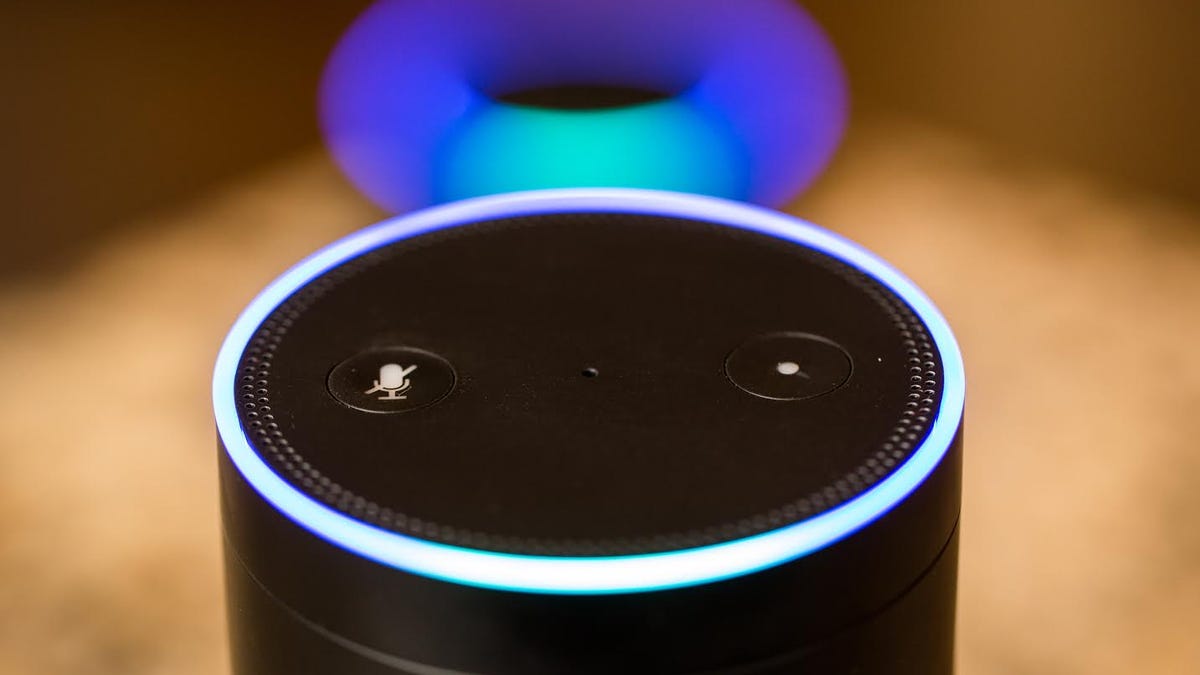Amazon's Alexa may someday remember your voice
The e-retailer is working on teaching its digital assistant to distinguish between users' voices, according to a report.

The Amazon Echo now has 10,000 "skills," but still doesn't recognize specific voices.
Smart speakers like Amazon's Echo are getting better at understanding what we say, but they still have no clue who specifically is talking to them.
Looking to change that, Amazon is developing technology called Voice ID to allow its Alexa voice assistant housed in the Echo to distinguish between different people's voices, Time reported Monday, citing unnamed sources.
An Amazon spokeswoman said the company doesn't comment on "rumors or speculation."
The Voice ID concept could improve parent controls, allowing mom and dad to prevent their kids from making any purchases with an Echo or access other features. Right now, parents can set a pin code for purchases. Also, recognizing voices could help the Echo personalize its responses for different users.
However, due to privacy concerns, users may dislike the idea of an Echo remembering who they are.
After the Echo became a surprise hit following its launch in late 2014, Amazon has been aggressively adding more features to the device and integrating its Alexa digital helper into more electronics.
Mike George, Amazon's vice president of Alexa, told CNET at CES last month that his team was working on teaching Alexa to better understand context, such as remembering prior requests, and to become more conversational. Adding the ability to remember specific voices could help with both concepts.
"She will become smarter and use that information to have much more natural interactions with you," he said last month.
Virtual reality 101: CNET tells you everything you need to know about VR.
Tech Enabled: CNET chronicles tech's role in providing new kinds of accessibility.

